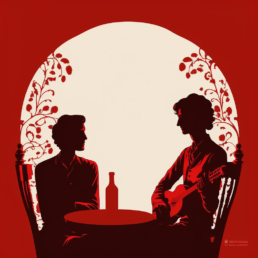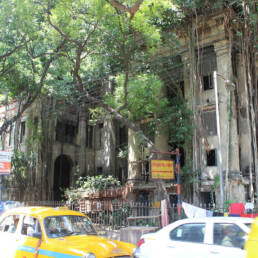With the Hindenburg report unfolding, my clueless neighbor came upstairs and asked me “what do they mean by crony capitalism?” So, I told him a story of the humble bicycle reflector.
Once upon a time, in Germany, a man named Anton Loibl had a vision. When he saw the growing number of automobiles, streetcars, and horse-drawn carriages on the bustling streets of Berlin, he also saw a problem to solve.
He was an innovator. He realized the need for improved safety measures, especially for cyclists at night. And so, he founded Anton Loibl GmbH, a company specializing in the production of bicycle reflectors.
Anton’s reflectors were made of a new, highly reflective material that shone brightly in the dark, making them highly visible to drivers. However, the part-time innovator had a different identity too. He was the former loyal chauffeur of Adolf Hitler.
Yes! Anton Loibl, the ambitious innovator, was a Nazi accomplice. He took part in the Beer Hall Putsch, a failed uprising by the Nazi Party as a member of the Nazi paramilitary squad. He even became a friend of Heinrich Himmler, the mastermind behind the Holocaust.
Meanwhile, Himmler established ‘Ahnenerbe’, a center for cultural research whose mission was to assert the superiority of the German race. In short, a precursor to modern day IT Cell. The project needed heavy funds when he discovered Anton Loibl. Jackpot!
The rise of Anton Loibl’s inventions and business served as the ideal solution to the financial demand. Hitler’s SchutzStaffel (SS) and the inventor established Anton Loibl GmbH as a joint limited liability company in 1936, often known as ToLo.
The pact was made. The Loibl invention of reflectors would be marketed by the SS firm, and Himmler’s nationalist endeavors would be funded in part by the sales. His company saw unforeseeable growth thanks to the government’s active patronage.
However, reportedly, there was a competitor. Two Dresden-based inventors had already submitted patent applications for the design and the substance to be utilized in the bicycle reflectors. The government intervened.
In order to prevent the Dresden couple from receiving the bicycle reflector patent, the government used shadow manipulations to ensure their blue-eyed-boy received it. This opened a doorway to monopoly and cash flow.
Not quite over yet, though. In November 1937, Himmler quickly approved a new road traffic legislation making these bicycle pedal reflectors necessary for all bicycles on German roadways. A mandate that would change the fortune.
With the enactment of such legislation and Government’s shaping of public regulations, Anton Loibl GmbH was able to start minting money from each bicycle reflector that was produced and purchased.
Their profit jumped exponentially over the next few years. Ahnenerbe’s financial growth likewise began to soar. Eventually the Nazi regime was brought to an end by WW2. Loibl’s fate remained unclear. But, the public rule requiring bicycle reflectors remains in effect today.
Perhaps, the tiny bicycle reflector serves as a classic reminder of Crony capitalism, where a business makes unhinged money through collusion with the State by sharing profits, bending rules and killing competition.
This thread is based on true events. Any resemblance to current reality is a pure coincidence.
Sources:
- Matt Robinson, Did The Nazis Invent The Bicycle Reflector? – Mythbusting Berlin, Berlin Experiences, https://www.berlinexperiences.com/did-the-nazis-invent-the-bicycle-reflector-mythbusting-berlin/
- Heather Pringle, The Master Plan: Himmler’s Scholars and the Holocaust, Hachette Books.
- Michael Thad Allen, The Business of Genocide: The SS, Slave Labor, and the Concentration Camps, University of North Carolina Press.
Image attributes:
- Original document: DE670226 ©, Espacenet.
- Ahnenerbe.jpg: Co-flens derivative work: Malyszkz (talk), CC-BY-SA-3.0 by Wikimedia.
- Himmler in 1929, German Federal Archive, CC BY-SA 3.0 de from Wikimedia.




